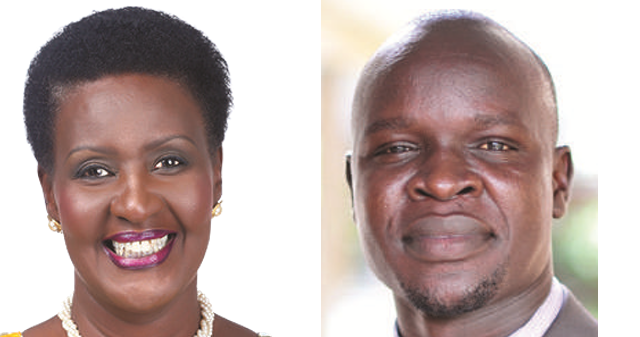
“We don’t believe that there should be a limit on drinking hours because one can abuse alcohol at any time,” Onapito said.
“We also don’t support the use of taxation as a tool to curb alcohol abuse. Already, a bulk of alcohol is illicit, meaning that even if we increase taxes on licit alcohol, it will not help reduce abuse.”
A study conducted by Euromonitor International Consulting for NBL and related subsidiaries on alcohol beverage market shows that beer production in Uganda stood at 1.10million litres valued at US$2.8billion (Ushs 9.92 trillion) in 2015.
Out of this, illicit alcoholic beverages accounted for 61.1% of the total alcohol market and 24.1% in value terms, while the licit market represented the remaining 38.9% and 75.9% respectively. Illicit alcohol, however, do not pay taxes to the government as they are never tracked.
The growth in illicit alcohol consumption, according to the report, is due to ease of access, unemployment, high levels of affordability and the uncontrolled production, distribution and sale in both informal and formal channels.
“A lack of consistent or proper enforcement, inspection and registration of traders and transactions has, to this point, allowed illicit production to flourish,” the report notes in part.
Other countries have similar laws
But Uganda is not the only country that is proposing to come up with a law to regulate alcohol consumption.
Kenya passed a similar law in 2012 saying alcohol had ravaged the county leading to death, blindness, family break-ups, but most important the waste of able bodied youth and men who would otherwise be engaged in productive work.
Last year, Queensland passed an alcohol law cutting off early morning drinking at bars and clubs to reduce late-night violence. The law stipulates that people not be allowed to buy alcohol after 2am.
On the other hand, the Scottish Parliament passed legislation to introduce a 50Pence (Ushs 2,212) per unit minimum price for alcohol to tackle the country’s alcohol abuse problems.
However, this was challenged by the Scotch Whisky Association and is the subject of an ongoing legal case.
In England, a newly public health study released last December shows that one million people get hospital admissions relating to alcohol each year, and that half of these occur in the lowest three socio-economic groups, according to the Telegraph, UK’s online newspaper.
As such, the deaths due to drinking have risen, particularly for liver disease which has increased more than four-fold since 1970.
The study also notes that more working years of life are lost in England as a result of alcohol-related deaths than from more than 12 types of cancer combined.
The study, which examined the role of advertising and marketing, pointing to comprehensive research, shows that “the self-regulation of marketing by the alcohol industry is ineffective”.
Now it recommends policies including setting minimum pricing and tackling how alcohol is marketed by firms as some of the measures that could improve the nation’s health.
The report said one province in Canada, which had put a 10 % increase on minimum prices for alcoholic drinks, saw the consumption of beer cut by 10 %. There was a 22 % cut for high-strength beer, 5.9 % for spirits and 4.6 % for wine.
Back in Uganda, Kalule Sengo, the Gomba East Member of Parliament said it is unacceptable to lead a country with high levels of alcohol consumption and yet people are poor.
“You cannot manage a nation where they say, we are among the highest alcohol consumers in the world. It is unthinkable,” he said.
“We should regulate drinking habits so that people can go to work, make money and develop so that they can return the next day for another drink.”
****
editor@independent.co.ug
 The Independent Uganda: You get the Truth we Pay the Price
The Independent Uganda: You get the Truth we Pay the Price


